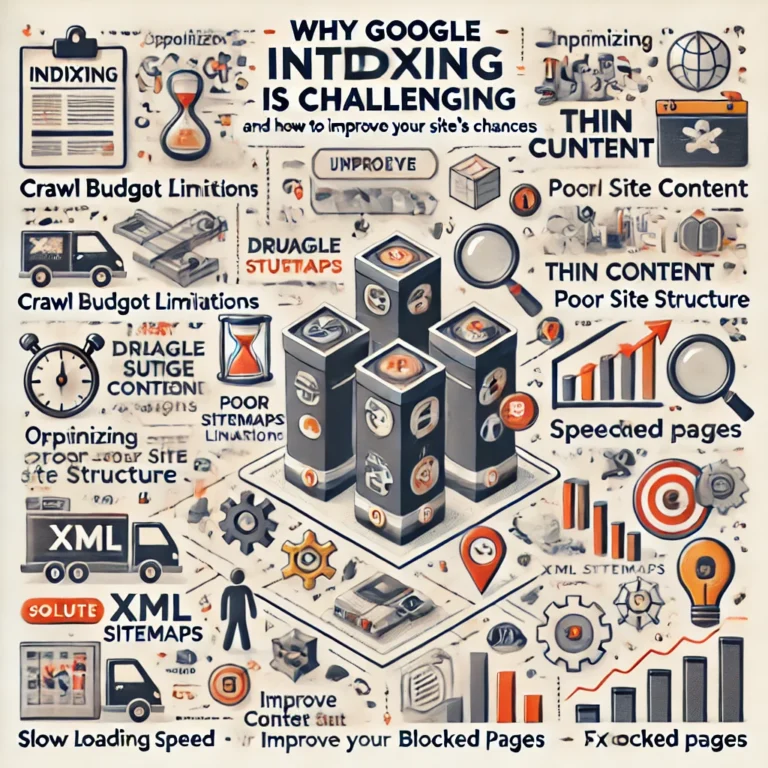Understanding RankBrain and Google’s AI-Powered Algorithms
In the ever-evolving world of search engines, Google Algorithms play a pivotal role in determining how information is retrieved and ranked. Among these, RankBrain stands out as a revolutionary AI-powered component that has transformed the way search results are processed. This article delves into the intricacies of RankBrain, its integration into Google’s search ecosystem, and its impact on SEO strategies. By understanding these elements, businesses and content creators can better optimize their content for improved visibility and engagement.
RankBrain and Google Algorithms Overview
What is RankBrain?
RankBrain is an artificial intelligence system developed by Google to enhance the search engine’s ability to process and understand search queries. Unlike traditional algorithms that rely heavily on predefined rules, RankBrain uses machine learning to interpret the context and intent behind search terms. This allows it to deliver more relevant and accurate search results.
- RankBrain is part of Google’s Hummingbird algorithm.
- It helps Google understand complex and ambiguous queries.
- RankBrain continuously learns and improves from user interactions.
How RankBrain Fits into Google’s Search Ecosystem
RankBrain is not a standalone algorithm but a crucial component of Google’s broader search ecosystem. It works alongside other algorithms to refine search results and improve user experience. By analyzing patterns in search data, RankBrain helps Google adapt to changing search behaviors and preferences.
- RankBrain complements other algorithms like PageRank and BERT.
- It enhances Google’s ability to process natural language queries.
- RankBrain’s insights contribute to ongoing algorithm updates.
The Evolution of Google’s Search Algorithms
From PageRank to RankBrain
Google’s journey from PageRank to RankBrain marks a significant evolution in search technology. PageRank, introduced in the late 1990s, focused on link analysis to rank web pages. Over time, Google incorporated more sophisticated algorithms like RankBrain to address the complexities of modern search queries.
- PageRank was the foundation of Google’s search algorithm.
- RankBrain introduced AI and machine learning to search.
- The evolution reflects Google’s commitment to improving search accuracy.
Key Milestones in Google’s Algorithm Development
Google’s algorithm development has seen several key milestones, each contributing to a more refined search experience. From the introduction of PageRank to the integration of AI technologies like RankBrain, these milestones highlight Google’s dedication to innovation.
- 1998: Launch of PageRank.
- 2013: Introduction of Hummingbird.
- 2015: Implementation of RankBrain.
How RankBrain Works
Machine Learning and Artificial Intelligence in Search
RankBrain leverages machine learning and artificial intelligence to process search queries more effectively. By analyzing vast amounts of data, it identifies patterns and relationships that help it understand user intent and deliver relevant results.
- Machine learning enables RankBrain to adapt to new search trends.
- AI helps RankBrain interpret complex and ambiguous queries.
- Continuous learning improves search accuracy over time.
Query Interpretation and User Intent Analysis
One of RankBrain’s primary functions is to interpret search queries and analyze user intent. By understanding the context behind search terms, RankBrain can provide more accurate and relevant results, even for queries it has never encountered before.
- RankBrain uses context clues to interpret search queries.
- It analyzes user behavior to refine search results.
- Understanding user intent is key to delivering relevant content.
RankBrain’s Impact on SEO
Adapting Keyword Strategies for RankBrain
With RankBrain’s focus on user intent, traditional keyword strategies need to be adapted. Instead of relying solely on exact match keywords, content creators should focus on semantic relevance and context to align with RankBrain’s capabilities.
- Emphasize semantic relevance over exact match keywords.
- Use natural language to align with RankBrain’s processing.
- Focus on user intent to improve search visibility.
Content Optimization in the Age of AI
In the age of AI, content optimization requires a deeper understanding of how algorithms like RankBrain process information. By creating high-quality, relevant content that addresses user needs, businesses can improve their search rankings and engagement metrics.
- Create content that addresses user questions and needs.
- Use structured data to enhance content visibility.
- Optimize for mobile and voice search to reach a broader audience.
Other AI-Powered Google Algorithms
BERT and Natural Language Processing
BERT (Bidirectional Encoder Representations from Transformers) is another AI-powered algorithm that enhances Google’s natural language processing capabilities. It helps Google understand the nuances of language, improving the accuracy of search results.
- BERT processes words in relation to all other words in a sentence.
- It improves Google’s understanding of context and meaning.
- BERT enhances search results for complex queries.
MUM and Multilingual Understanding
MUM (Multitask Unified Model) is designed to improve Google’s understanding of multilingual queries. By processing information across multiple languages, MUM helps deliver more comprehensive and accurate search results.
- MUM can process information in 75 languages.
- It enhances Google’s ability to understand and respond to multilingual queries.
- MUM improves search results for global audiences.
Optimizing for RankBrain and AI Algorithms
Creating High-Quality, Relevant Content
To optimize for RankBrain and other AI algorithms, focus on creating high-quality, relevant content that addresses user needs. By understanding user intent and providing valuable information, you can improve your search rankings and engagement metrics.
- Conduct thorough keyword research to understand user intent.
- Create content that answers common user questions.
- Use visuals and multimedia to enhance content engagement.
Improving User Experience and Engagement Metrics
User experience and engagement metrics play a crucial role in RankBrain’s ranking decisions. By improving site usability and encouraging user interaction, you can enhance your search visibility and performance.
- Optimize site speed and mobile responsiveness.
- Encourage user interaction through comments and social sharing.
- Monitor engagement metrics to identify areas for improvement.
The Future of Search with AI Algorithms
Predictions for Upcoming Google Algorithm Updates
As AI technology continues to evolve, Google is likely to introduce new algorithm updates that further enhance search capabilities. By staying informed about these developments, businesses can adapt their strategies to maintain search visibility.
- AI will play a larger role in search algorithm updates.
- Future updates may focus on improving personalization and context understanding.
- Staying informed about algorithm changes is crucial for SEO success.
Preparing for an AI-Driven Search Landscape
To thrive in an AI-driven search landscape, businesses must adapt their strategies to align with evolving algorithms. By focusing on user intent and creating valuable content, you can maintain search visibility and engagement.
- Embrace AI technologies to enhance content creation.
- Focus on user-centric strategies to improve search performance.
- Continuously monitor and adapt to algorithm changes.
Measuring Success in the RankBrain Era
Key Performance Indicators for AI-Optimized Content
Measuring the success of AI-optimized content requires a focus on key performance indicators (KPIs) that reflect user engagement and search visibility. By tracking these metrics, you can assess the effectiveness of your SEO strategies.
- Monitor organic search traffic and rankings.
- Track user engagement metrics like bounce rate and time on page.
- Analyze conversion rates to assess content effectiveness.
Tools for Tracking Algorithm Impacts
Several tools can help you track the impact of algorithm changes on your search performance. By using these tools, you can identify areas for improvement and adapt your strategies accordingly.
- Google Analytics provides insights into user behavior and engagement.
- SEMrush and Ahrefs offer tools for tracking search rankings and visibility.
- Moz provides updates on algorithm changes and their impact.
FAQs
What is Google RankBrain and how does it affect search results?
Google RankBrain is an AI-powered component of Google’s search algorithm that helps interpret search queries and understand user intent. It affects search results by delivering more relevant and accurate information based on the context of the query.
How can I optimize my website for RankBrain and other Google algorithms?
To optimize your website for RankBrain and other Google algorithms, focus on creating high-quality, relevant content that addresses user needs. Emphasize semantic relevance and user intent in your keyword strategies, and improve user experience and engagement metrics.
Is RankBrain still the third most important ranking factor in Google’s algorithm?
Yes, RankBrain remains one of the top three ranking factors in Google’s algorithm. It plays a crucial role in interpreting search queries and delivering relevant results, alongside other factors like content quality and backlinks.
How does RankBrain differ from traditional keyword-based algorithms?
RankBrain differs from traditional keyword-based algorithms by focusing on user intent and context rather than exact match keywords. It uses machine learning to understand the nuances of language and deliver more relevant search results.
What role does user experience play in RankBrain’s ranking decisions?
User experience plays a significant role in RankBrain’s ranking decisions. By improving site usability and encouraging user interaction, you can enhance your search visibility and performance in the RankBrain era.
How often does Google update RankBrain and other AI-powered algorithms?
Google frequently updates its AI-powered algorithms, including RankBrain, to improve search accuracy and relevance. While specific update schedules are not disclosed, staying informed about algorithm changes is crucial for maintaining search visibility.
Can RankBrain understand the context and intent behind search queries?
Yes, RankBrain is designed to understand the context and intent behind search queries. By analyzing patterns in search data, it can deliver more relevant and accurate results based on the user’s intent.
How does RankBrain impact long-tail keyword strategies?
RankBrain impacts long-tail keyword strategies by emphasizing semantic relevance and user intent. Instead of focusing solely on exact match keywords, content creators should consider the context and meaning behind search queries to align with RankBrain’s capabilities.





